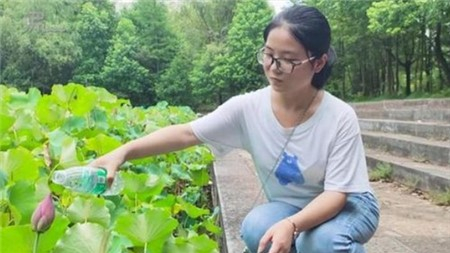
Fight against all odds CHINA DIARY: When 'left-behind' children are unafraid to chase their dreams
Don't Miss
After reading about him, his school got him a computer, local authorities arranged a free broadband connection and, most importantly, a prestigious university showed interest in him. His performance in the gao kao made him eligible to enroll himself in the engineering course of the university.
 |
| Zhong Fangrong. |
Neha Sahay | TT | 03.11.20 : Zhong Fangrong, who recently aced the gao kao, China’s challenging pre-university entrance exam, has announced that she wants to study archaeology. No, she is not from the kind of family where such leanings can be indulged in without worrying about mundane things like job prospects and salaries.
A child of migrant workers, Zhong was brought up by her grandparents in their village. This ‘left-behind child’ — the phrase used for children of migrant labour who are left behind in their villages — came fourth among the 1,94,000 liberal arts students in her province, Hunan.
Zhong could have had her pick of subjects, but she chose archaeology, because, as she said, history and cultural relics had always fascinated her. This made her the target of harsh ‘advice’ on social media. “You will regret your choice once you enter the job market,’’ she was warned by netizens, who unkindly pointed out to her that she was from an underprivileged background and should, therefore, choose a subject that promises a high-paying job. The phrase, ‘#left-behind girl was enrolled by Peking University but chose to study archaeology’, became a trending topic on China’s version of Twitter.
Unexpected help
Before she could buckle under, however, Zhong got support from unexpected quarters. The 82-year-old honorary president of the country’s oldest archaeological institute sent her a copy of her biography and a letter advising her to stay true to her dreams. Herself a Peking University alumnus, this Shanghai-born trailblazer had travelled to the edge of the Gobi desert way back in 1963, driven by the urge to protect the Mogao Grottoes, which were then being looked after by an institute set up in 1944. She spent her life looking after these ancient Buddhist caves, which were declared a Unesco world heritage site in 1987. Other museums and archaeological institutes too sent Zhong artifacts and literature to encourage her.
That someone like Zhong can choose a career in a low-profile discipline shows that China is today a land of opportunity for those willing to be adventurous.
Then there was the case of the boy on the freezing terrace. As in India, the shift to online classes necessitated by the lockdown hit poor students the hardest. One of them made news when a photograph of him studying on the freezing terrace of his building at 5.30 am appeared in the newspapers. It was only at that hour and at that spot that the boy could get the strongest internet signal on his phone. Too poor to afford either a computer or an internet data pack, he had to gain access to online classes on his father’s cell phone by connecting to a kind neighbour’s WiFi.
After reading about him, his school got him a computer, local authorities arranged a free broadband connection and, most importantly, a prestigious university showed interest in him. His performance in the gao kao made him eligible to enroll himself in the engineering course of the university.


0 Response to "Fight against all odds CHINA DIARY: When 'left-behind' children are unafraid to chase their dreams"
Post a Comment
Disclaimer Note:
The views expressed in the articles published here are solely those of the author and do not necessarily reflect the official policy, position, or perspective of Kalimpong News or KalimNews. Kalimpong News and KalimNews disclaim all liability for the published or posted articles, news, and information and assume no responsibility for the accuracy or validity of the content.
Kalimpong News is a non-profit online news platform managed by KalimNews and operated under the Kalimpong Press Club.
Comment Policy:
We encourage respectful and constructive discussions. Please ensure decency while commenting and register with your email ID to participate.
Note: only a member of this blog may post a comment.